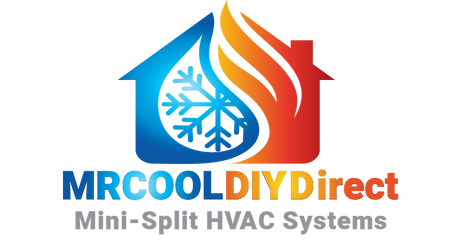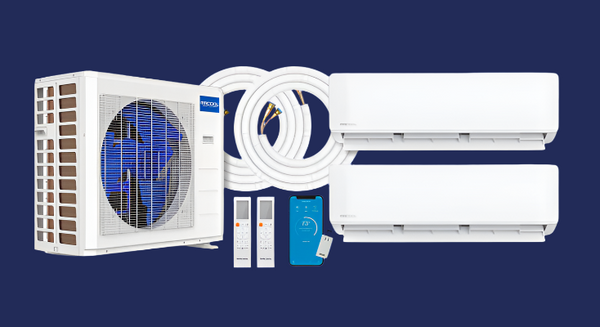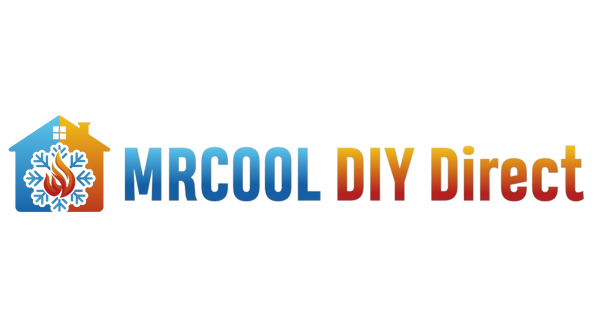Choosing the Right Heat Pump System for Your Home: Ducted vs. Ductless
Selecting the right heat pump system is crucial for maintaining comfort and energy efficiency in your home. But how do you decide between a ducted or ductless system? At MRCOOL®, we’re here to guide you through the decision-making process, helping you choose the perfect solution tailored to your needs.
In this guide, we’ll cover the basics of heat pumps, explore the benefits of both ducted and ductless systems, and provide practical insights to help you make an informed decision.
What is a Heat Pump?
A heat pump is a versatile HVAC system that heats and cools your home by transferring heat rather than generating it. During colder months, it pulls heat from the outside air and brings it indoors. In the summer, it works in reverse, expelling heat from your home to the outside.
This process makes heat pumps an energy-efficient choice for year-round climate control. MRCOOL® heat pumps are engineered to provide cost-effective, reliable comfort with innovative technology.
Ducted Heat Pumps
How They Work:
Ducted heat pumps distribute conditioned air through a network of ducts installed in walls, floors, or ceilings, delivering uniform heating or cooling to multiple rooms via vents.
Key MRCOOL® Models:
Advantages of Ducted Heat Pumps:
- Whole-Home Comfort: Provide consistent temperatures across all rooms, ideal for large homes.
- Aesthetic Appeal: Concealed ducts and units keep living spaces clean and uncluttered.
Disadvantages of Ducted Heat Pumps:
- Complex Installation: Homes without existing ductwork require significant construction and expense to add ducts.
- Energy Loss: Ducts can lose up to 30% of conditioned air due to leaks or poor insulation, reducing efficiency.
- Maintenance: Regular duct cleaning is necessary to maintain air quality and system performance.
Ductless Heat Pumps
How They Work:
Also known as mini-splits, ductless systems consist of an outdoor condenser and one or more indoor air handlers connected via refrigerant lines. These systems eliminate the need for ductwork, making them ideal for retrofits and new installations alike.
Key MRCOOL® Models:
Advantages of Ductless Heat Pumps:
- Zoned Comfort: Allows independent temperature control for each room or area, optimizing energy use.
- Energy Efficiency: No energy loss from ductwork, making ductless systems more efficient.
- Simple Installation: Requires only a small hole for refrigerant lines, making it quick and minimally invasive.
Disadvantages of Ductless Heat Pumps:
- Visible Units: Indoor air handlers are mounted on walls or ceilings, which may not suit all aesthetics.
- Limited Airflow: Each air handler is responsible for its zone, which may not cover large open areas as effectively as ducted systems.
How to Choose Between Ducted and Ductless Heat Pumps
Consider the following factors:
- Existing Infrastructure: Homes with ductwork are better suited for ducted systems, while ductless systems are ideal for homes without ducts or where adding them would be impractical.
- Home Size: Large homes with multiple rooms benefit from ducted systems for whole-home comfort. Ductless systems work best for zoned areas, additions, or open layouts.
- Budget and Aesthetics: Ducted systems offer a hidden solution, while ductless systems are more affordable to install and operate.
- Energy Efficiency Goals: Ductless systems tend to be more energy-efficient due to the absence of duct-related energy loss.
Why Choose MRCOOL® Heat Pumps?
Whether you opt for a ducted or ductless system, MRCOOL® offers a range of innovative, energy-efficient options designed to meet your specific needs. Features like Smart HVAC app control, variable-speed compressors, and limited lifetime warranties set MRCOOL® apart as a leader in HVAC technology.
Take the Next Step
Ready to upgrade your home’s comfort and efficiency? Explore the full range of MRCOOL® heat pumps at MRCOOL DIY Direct, your trusted source for quality HVAC solutions. Our expert team is here to assist with product selection, installation guidance, and post-purchase support.
Visit MRCOOLDIYDIRECT.COM today to discover the ideal heat pump system for your home and enjoy year-round comfort backed by the reliability of MRCOOL®.




